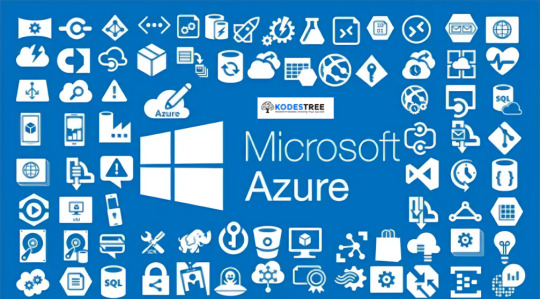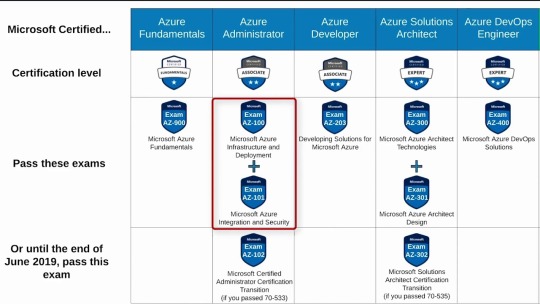#devops microsoft certification
Explore tagged Tumblr posts
Text












🤝Hand holding support is available with 100% passing assurance🎯 📣Please let me know if you or any of your contacts need any certificate📣 📝or training to get better job opportunities or promotion in current job📝 📲𝗖𝗼𝗻𝘁𝗮𝗰𝘁 𝗨𝘀 : Interested people can whatsapp me directly ✅WhatsApp :- https://wa.link/ymcu0i 💯Proxy available with 100% passing guarantee.📌 🎀 FIRST PASS AND THAN PAY 🎀 ISC2 : CISSP & CCSP Cisco- CCNA, CCNP, Specialty ITILv4 CompTIA - All exams Google-Google Cloud Associate & Google Cloud Professional People Cert- ITILv4 PMI-PMP, PMI-ACP, PMI-PBA, PMI-CAPM, PMI-RMP, etc. EC Counsil-CEH,CHFI AWS- Associate, Professional, Specialty Juniper- Associate, Professional, Specialty Oracle - All exams Microsoft - All exams SAFe- All exams Scrum- All Exams Azure & many more… 📲𝗖𝗼𝗻𝘁𝗮𝗰𝘁 𝗨𝘀 : Interested people can whatsapp me directly ✅WhatsApp :- https://wa.link/ymcu0i
#microsoft#software#azure#devops#aws#family#cisco#pmp#pmp training#pmp course#pmp certification#pmp exam
0 notes
Text
#azure data engineer#azure course#azure training#azure online training#azure certification#microsoft azure certification#azure certification path#azure fundamentals#azure devops certification#azure cloud certification#microsoft azure fundamentals
1 note
·
View note
Text
Why AWS DevOps Is a Must-Have Skill for Tomorrow’s Cloud Professionals

As cloud computing continues to redefine the technological landscape, AWS DevOps skills have emerged as essential for professionals aspiring to thrive in this dynamic environment. The integration of development and operations within the AWS framework streamlines processes and accelerates software delivery, making it a vital asset for any cloud professional. For those looking to enhance their career prospects, training at reputable AWS institutes in Hyderabad can provide the necessary expertise. Let’s explore why AWS DevOps skills are indispensable for tomorrow's cloud professionals.
The Importance of Cloud Computing
1. Accelerated Cloud Adoption
Organizations across industries are rapidly adopting cloud solutions to improve scalability, efficiency, and cost-effectiveness. AWS stands at the forefront of this transformation, offering a comprehensive suite of services. As companies shift their operations to the cloud, the need for professionals skilled in AWS DevOps grows exponentially. Enrolling in one of the top AWS institutes in Hyderabad can prepare you to meet this rising demand.
2. The Need for Faster Delivery
In today’s competitive market, speed is crucial. Companies must deploy applications and updates swiftly to stay ahead. AWS DevOps professionals play a vital role in optimizing the software development lifecycle, enabling quicker releases and improved collaboration between teams. Training at AWS institutes in Hyderabad equips you with the skills needed to enhance efficiency and drive faster delivery.
Key Benefits of AWS DevOps Skills
1. Mastery of Essential Tools
AWS offers a wide array of tools integral to DevOps practices, such as AWS CodePipeline, AWS Lambda, and AWS CloudFormation. Gaining expertise in these tools is crucial for managing cloud infrastructure and automating workflows. The curriculum at AWS institutes in Hyderabad will provide hands-on training with these technologies, ensuring you are well-prepared for real-world applications.
2. Focus on Automation
Automation is a cornerstone of DevOps, significantly reducing manual intervention and the potential for errors. AWS provides robust automation solutions that help teams achieve reliability and consistency. By mastering automation techniques through training at the AWS institutes in Hyderabad, you will become a key player in your organization’s cloud strategy.
Career Opportunities in AWS DevOps
1. Diverse Roles Await
With AWS DevOps skills, you can explore a variety of career paths, including:
DevOps Engineer
Cloud Solutions Architect
Site Reliability Engineer (SRE)
Automation Engineer
Each of these roles presents unique challenges and opportunities for advancement, allowing you to tailor your career according to your interests.
2. Competitive Salaries and Benefits
The growing demand for AWS DevOps professionals translates into attractive salary packages. Companies are eager to invest in skilled individuals who can drive their cloud initiatives. Completing your training at the AWS institutes in Hyderabad will position you to command a competitive salary in this lucrative field.
3. Long-Term Job Security
The ongoing trend toward cloud adoption ensures that the demand for AWS DevOps experts will remain robust. Pursuing a career in this area not only offers excellent earning potential but also long-term job security, making it a wise investment for aspiring professionals.
The Value of Continuous Learning
1. Keeping Up with Technological Advances
The tech landscape is constantly changing, with AWS frequently rolling out new features and services. To stay relevant, it’s essential to keep your skills up-to-date. Training at the AWS institutes in Hyderabad ensures that you receive the latest information and insights necessary to excel in this dynamic environment.
2. Networking Opportunities
Many top AWS institutes offer networking opportunities, enabling you to connect with industry professionals and potential employers. Building relationships in the tech community can open doors to valuable job opportunities and career advancements.
Conclusion
AWS DevOps skills are becoming increasingly essential for cloud professionals as organizations continue to embrace cloud computing. By enrolling in the AWS institutes in Hyderabad, you can acquire the expertise needed to excel in this high-demand field.
Investing in your education will not only enhance your career prospects but also position you as a key player in the future of cloud computing. Don’t miss the chance to elevate your career—consider enrolling in one of the top AWS institutes in Hyderabad today and take the first step toward a successful future in the tech industry!
#technology#cloud computing certification#cloud computing course in mumbai#cloud computing trends#cloud computing jobs#cloud computing skills#cloud computing course#cloud computing market#Cloud Computing#devops#aws devops course in hyderabad#DevOps#AWS#aws course#aws certification#aws training#aws cloud#aws coaching centers in hyderabad#aws training in hyderabad#azure course#AZURE#microsoft azure#amazon web services#Cloud Computing & DevOps#aws institutes in hyderabad
0 notes
Text

Unlock your future with our Microsoft Azure + DevOps course! 🚀 Master cloud computing and continuous integration with hands-on projects and expert guidance. Enjoy a 40% discount for a limited time. Enroll now! 🌐📈
Course link: https://www.emexotechnologies.com/courses/microsoft-azure-devops-training-course-az-400/
Course Benefits:
Learn from Industry Experts
Hands-on Experience with Real Projects
Certification upon Completion
Career Support and Placement Assistance
📅 Demo Class on: [ 30th Aug 2024 ]
📍 Location: [ Electronic City, Bangalore ]
💰 Special Offer: Enroll now and get a 40% discount!
For Get More Info:
📞 Phone: [ +91 9513216462 ]
🌐 Website: [ https://www.emexotechnologies.com/ ]
📧 Email: [ [email protected] ]
#azure devops#microsoft azure#azure training#azuretraininginstituteinelectroniccitybangalore#devopscourseinelectroniccity#techeducation#techskills#career growth#certification course#e learning#learning#emexotechnologies#bangalore#electroniccity
0 notes
Text
Master the Future of DevOps with the Microsoft Azure DevOps Training Course (AZ-400)
In the fast-changing world of IT, DevOps has become an essential field that connects development and operations, enabling smooth software delivery and improved teamwork. As businesses worldwide increasingly adopt cloud services, proficiency in Microsoft Azure DevOps is becoming indispensable for IT professionals looking to stay ahead in their careers. The Microsoft Azure DevOps Training Course (AZ-400), offered by eMexo Technologies in Electronic City, Bangalore, is designed to equip you with the necessary skills to excel in this domain.
Why Choose Microsoft Azure DevOps?
Microsoft Azure has firmly established itself as one of the leading cloud platforms globally, providing a comprehensive suite of services that cater to various aspects of cloud computing, including storage, networking, and analytics. However, what truly sets Azure apart is its robust DevOps capabilities, which enable organizations to automate and streamline their software development lifecycle.
Azure DevOps services offer a unified platform for CI/CD (Continuous Integration/Continuous Deployment), source code management, and agile project management. Mastery of these tools is critical for anyone working in a modern DevOps environment. By completing the AZ-400 certification, professionals demonstrate their expertise in designing and implementing DevOps practices using Azure technologies, making them valuable assets to any organization.
Comprehensive Training at eMexo Technologies
As the best Microsoft Azure DevOps Training Institute in Electronic City Bangalore, eMexo Technologies is committed to providing a learning experience beyond the basics. Our Microsoft Azure DevOps Training Course (AZ-400) is meticulously structured to cover all the essential concepts, tools, and techniques needed to master DevOps on Azure. Here’s a glimpse of what our course offers:
In-depth curriculum Aligned with Industry Standards Our course content is constantly updated to reflect the latest trends and practices in the industry. The curriculum is aligned with the Microsoft AZ-400 certification exam, ensuring that you are well-prepared to pass the exam with flying colors. The topics covered include: Introduction to Azure DevOps: Understanding the basics of DevOps and the Azure DevOps platform. Version Control with Git: Learn how to manage source code effectively using Git repositories hosted on Azure Repos. Continuous Integration (CI): Setting up automated builds and integrating code changes seamlessly using Azure Pipelines. Continuous Deployment (CD): Automating the deployment of applications across various environments using Azure Pipelines. Infrastructure as Code (IaC): Implementing and managing infrastructure using tools like Azure Resource Manager (ARM) and Terraform. Monitoring and Logging: Setting up monitoring and logging solutions using Azure Monitor and Azure Log Analytics. Security and Compliance: Implementing security practices and ensuring compliance with industry standards.
Hands-on experience with Real-World Projects We believe in learning by doing. Our Microsoft Azure DevOps Course in Electronic City Bangalore is packed with hands-on labs and real-world projects that allow you to apply the concepts you learn in class. These projects are designed to simulate real-life scenarios, giving you the experience needed to tackle challenges in a professional environment.
Expert Instructors with Industry Experience Our instructors are experienced experts with extensive backgrounds in DevOps and cloud computing. They bring their industry insights into the classroom, giving you a deeper understanding of how Azure DevOps is applied in real-world situations. Their guidance will help you gain the practical skills needed to excel in your career.
Flexible Learning Options Understanding that professionals have different schedules, eMexo Technologies offers flexible learning options. Whether you prefer weekday classes, weekend batches, or even online learning, we have you covered. Our flexible schedule ensures you can balance your learning with your other commitments.
Post-Training Support and Placement Assistance We offer comprehensive post-training support, including doubt-clearing sessions, access to recorded classes, and additional learning resources. Furthermore, we provide placement assistance to help you land your dream job. Our committed placement team works diligently to link you with leading employers in the industry. Why eMexo Technologies is the Best Microsoft AzureDevops training institute in Bangalore Here’s why eMexo Technologies is the preferred choice for aspiring Azure DevOps professionals in Electronic City, Bangalore: Proven Track Record: We have successfully trained thousands of professionals who have gone on to secure high-paying jobs in top IT companies. State-of-the-Art Infrastructure: We provide excellent training facilities equipped with the latest technology and tools. Personalized Attention: We keep our class sizes small to guarantee that every student receives individualized attention from the instructor. Affordability: Our world-class training is available at competitive prices, making it accessible to everyone. The Future of DevOps and Cloud Computing The demand for Azure DevOps professionals grow in the coming years as more organizations adopt cloud-based solutions to enhance their agility and scalability. By mastering Azure DevOps, you position yourself at the forefront of this technological revolution, opening up a world of opportunities in the IT industry. Conclusion The Microsoft Azure DevOps Training Course (AZ-400) offered by eMexo Technologies in Electronic City, Bangalore, is your gateway to a successful career in DevOps. An all-encompassing curriculum provides you with the expertise and understanding necessary to thrive in the industry. Enroll now and join the ranks of successful professionals who have transformed their careers with eMexo Technologies.
0 notes
Text
Microsoft Devops Certification Course Azure DevOps Training Institute Azure DevOps Certification
0 notes
Text
The Importance of DevOps Online Certification
1. Introduction to DevOps Online Certification
In today's digital world, where businesses are constantly evolving and technology is advancing at an unprecedented rate, staying ahead of the curve is crucial. As organizations strive for agility, efficiency, and continuous integration and delivery, DevOps has emerged as a key methodology. By combining development and operations teams, DevOps aims to streamline the software development process and enhance collaboration. In this comprehensive guide, we will explore the importance of DevOps online certification, particularly in the context of Azure DevOps. Whether you are an aspiring IT professional or an experienced developer, this guide will equip you with the knowledge and skills needed to excel in the rapidly changing landscape of DevOps with certified DevOps training.
2.The Benefits of DevOps Online Certification
As mentioned in the previous section, the field of DevOps is becoming increasingly competitive in the job market, with employers seeking candidates who hold recognized certifications in this area. In this section, we will explore the benefits of obtaining a DevOps online certification and how it can enhance your career prospects.
1. Increased Employability: With a DevOps online certification, you can stand out from other job applicants and demonstrate your proficiency in DevOps practices. Employers often prioritize candidates with certifications, as it validates their skills and knowledge in this field.
2. Career Advancement: Holding a DevOps certification can open doors to higher-level positions in your organization. Certification showcases your commitment to professional development, making you a strong candidate for promotions and career growth opportunities.
3. Higher Salaries: Certified DevOps professionals often earn higher salaries compared to their non-certified counterparts. Organizations are willing to pay a premium for individuals who possess validated expertise and can contribute to their digital transformation initiatives.

3.Success in the Digital World: How DevOps Online Certification can Help
In today's digital world, where businesses are leveraging technology to drive innovation and stay competitive, it is crucial to have a solid understanding of DevOps principles. DevOps online certification can play a pivotal role in your success in this rapidly evolving landscape.
With a DevOps certification under your belt, you demonstrate to potential employers that you possess the knowledge and skills to effectively implement DevOps practices. This can open up a world of opportunities for career growth and advancement.
Additionally, DevOps online certification provides you with hands-on experience and practical skills that are highly valued in the industry. By gaining proficiency in tools and methodologies used in the DevOps ecosystem, you can contribute meaningfully to your organization's digital transformation initiatives.
Furthermore, being a certified DevOps professional allows you to network with like-minded individuals and experts in the field. This community can provide valuable insights and support, helping you stay updated with the latest trends and advancements in the DevOps domain.
4.Choosing the Right DevOps Online Certification Program
Now that you understand the importance of obtaining a DevOps online certification, it's crucial to choose the right program that aligns with your career goals and aspirations. With a multitude of options available, selecting the right certification program may seem daunting, but with a strategic approach, you can make an informed decision.
Firstly, determine your specific area of interest within the DevOps domain. Are you more inclined towards DevOps methodologies, tools, or architecture? Identifying your niche will help you narrow down the certifications that are most relevant to your professional journey.
Next, research the industry-recognized certification bodies. Look for programs that are widely recognized and respected within the DevOps community. Certifications from reputable organizations enhance your credibility and validate your expertise to potential employers.
youtube
Consider the prerequisites and requirements for each certification program. Some certifications may have certain experience or educational prerequisites, while others may require passing specific exams. Evaluate your eligibility and ensure that you meet the necessary criteria.
Furthermore, assess the curriculum of each certification program. Look for comprehensive and up-to-date course material that covers the essential topics and tools in the DevOps field. A well-structured program will equip you with the knowledge and skills needed to excel in your career.
Additionally, consider the mode of delivery for the certification program. Online courses offer flexibility and convenience, allowing you to learn at your own pace. Look for programs with interactive elements, such as hands-on labs and assignments, to enhance your practical understanding of DevOps principles.
Lastly, take into account the reputation and reviews of the certification program. Seek feedback from professionals who have completed the program to get an insight into the quality of education and the value it offers. Online forums and professional networking sites can be valuable resources for gathering this information.
5.Conclusion: Embracing DevOps Online Certification for a Successful Future
In conclusion, obtaining a DevOps online certification training is a crucial step towards achieving success in the digital world. The benefits of certification are extensive and can greatly impact your career prospects. From increased credibility and job opportunities to higher salaries and career progression, a recognized certification in DevOps sets you apart from the competition.
By investing in an online DevOps certification, you gain the flexibility to learn at your own pace while acquiring the skills necessary to excel in the field. Whether you are a beginner or an experienced professional, these certifications provide the foundation or advanced knowledge to propel your career forward.
#h2kinfosys#devops#devops coure#devops training near me#aws devops certification#devops tutorial#microsoft azure#azure course#awscertification#aws services#aws course#Youtube
0 notes
Text
Bangalore is a hub for IT companies, startups, and multinational corporations, making it an ideal location to study and work in the field of cybersecurity. The city boasts numerous educational institutions and training centers that offer comprehensive cybersecurity courses to cater to the growing demand for cybersecurity professionals.
#Course Bundles in India#Computer Support in Pune#Cybersecurity Courses in Banglore#Cybersecurity Courses Online#Networking Certifications in Hyderabad#CompTIA Courses Online in India#Microsoft Courses in India#Cisco Courses in Mumbai#Database Systems in pune#Blockchain Courses in Delhi#Programming DevOps in Banglore#Google Certifications in Pune#Google Certifications Online#Cloud Computing in Mumbai#Business & Management in India#Adobe Courses in Mumbai#Design Courses in Pune#Business Productivity in Banglore#Social Media Marketing in India#Microsoft Courses in Online
1 note
·
View note
Text
youtube
#az900#azure fundamentals#certification#technology#azure#youtube#microsoft#azure devops#microsoft azure#Youtube
0 notes
Text
Azure Master Program: Build Expertise in Cloud Computing & DevOps
The Azure Master Program is a specialized course designed to help professionals gain in-depth knowledge of Microsoft Azure. It covers key areas such as Azure Cloud DevOps, cloud infrastructure, automation, security, and deployment strategies. The program is structured to provide practical learning, ensuring that participants can apply their skills to real-world cloud environments.
Whether you're starting your cloud journey or enhancing your existing skills, this program prepares you for industry-recognized Azure DevOps Certification. Join the Azure Master Program today and take a step forward in your career with Kodestree, a leading IT training institute in Bangalore.

0 notes
Text
How-To IT
Topic: Core areas of IT
1. Hardware
• Computers (Desktops, Laptops, Workstations)
• Servers and Data Centers
• Networking Devices (Routers, Switches, Modems)
• Storage Devices (HDDs, SSDs, NAS)
• Peripheral Devices (Printers, Scanners, Monitors)
2. Software
• Operating Systems (Windows, Linux, macOS)
• Application Software (Office Suites, ERP, CRM)
• Development Software (IDEs, Code Libraries, APIs)
• Middleware (Integration Tools)
• Security Software (Antivirus, Firewalls, SIEM)
3. Networking and Telecommunications
• LAN/WAN Infrastructure
• Wireless Networking (Wi-Fi, 5G)
• VPNs (Virtual Private Networks)
• Communication Systems (VoIP, Email Servers)
• Internet Services
4. Data Management
• Databases (SQL, NoSQL)
• Data Warehousing
• Big Data Technologies (Hadoop, Spark)
• Backup and Recovery Systems
• Data Integration Tools
5. Cybersecurity
• Network Security
• Endpoint Protection
• Identity and Access Management (IAM)
• Threat Detection and Incident Response
• Encryption and Data Privacy
6. Software Development
• Front-End Development (UI/UX Design)
• Back-End Development
• DevOps and CI/CD Pipelines
• Mobile App Development
• Cloud-Native Development
7. Cloud Computing
• Infrastructure as a Service (IaaS)
• Platform as a Service (PaaS)
• Software as a Service (SaaS)
• Serverless Computing
• Cloud Storage and Management
8. IT Support and Services
• Help Desk Support
• IT Service Management (ITSM)
• System Administration
• Hardware and Software Troubleshooting
• End-User Training
9. Artificial Intelligence and Machine Learning
• AI Algorithms and Frameworks
• Natural Language Processing (NLP)
• Computer Vision
• Robotics
• Predictive Analytics
10. Business Intelligence and Analytics
• Reporting Tools (Tableau, Power BI)
• Data Visualization
• Business Analytics Platforms
• Predictive Modeling
11. Internet of Things (IoT)
• IoT Devices and Sensors
• IoT Platforms
• Edge Computing
• Smart Systems (Homes, Cities, Vehicles)
12. Enterprise Systems
• Enterprise Resource Planning (ERP)
• Customer Relationship Management (CRM)
• Human Resource Management Systems (HRMS)
• Supply Chain Management Systems
13. IT Governance and Compliance
• ITIL (Information Technology Infrastructure Library)
• COBIT (Control Objectives for Information Technologies)
• ISO/IEC Standards
• Regulatory Compliance (GDPR, HIPAA, SOX)
14. Emerging Technologies
• Blockchain
• Quantum Computing
• Augmented Reality (AR) and Virtual Reality (VR)
• 3D Printing
• Digital Twins
15. IT Project Management
• Agile, Scrum, and Kanban
• Waterfall Methodology
• Resource Allocation
• Risk Management
16. IT Infrastructure
• Data Centers
• Virtualization (VMware, Hyper-V)
• Disaster Recovery Planning
• Load Balancing
17. IT Education and Certifications
• Vendor Certifications (Microsoft, Cisco, AWS)
• Training and Development Programs
• Online Learning Platforms
18. IT Operations and Monitoring
• Performance Monitoring (APM, Network Monitoring)
• IT Asset Management
• Event and Incident Management
19. Software Testing
• Manual Testing: Human testers evaluate software by executing test cases without using automation tools.
• Automated Testing: Use of testing tools (e.g., Selenium, JUnit) to run automated scripts and check software behavior.
• Functional Testing: Validating that the software performs its intended functions.
• Non-Functional Testing: Assessing non-functional aspects such as performance, usability, and security.
• Unit Testing: Testing individual components or units of code for correctness.
• Integration Testing: Ensuring that different modules or systems work together as expected.
• System Testing: Verifying the complete software system’s behavior against requirements.
• Acceptance Testing: Conducting tests to confirm that the software meets business requirements (including UAT - User Acceptance Testing).
• Regression Testing: Ensuring that new changes or features do not negatively affect existing functionalities.
• Performance Testing: Testing software performance under various conditions (load, stress, scalability).
• Security Testing: Identifying vulnerabilities and assessing the software’s ability to protect data.
• Compatibility Testing: Ensuring the software works on different operating systems, browsers, or devices.
• Continuous Testing: Integrating testing into the development lifecycle to provide quick feedback and minimize bugs.
• Test Automation Frameworks: Tools and structures used to automate testing processes (e.g., TestNG, Appium).
19. VoIP (Voice over IP)
VoIP Protocols & Standards
• SIP (Session Initiation Protocol)
• H.323
• RTP (Real-Time Transport Protocol)
• MGCP (Media Gateway Control Protocol)
VoIP Hardware
• IP Phones (Desk Phones, Mobile Clients)
• VoIP Gateways
• Analog Telephone Adapters (ATAs)
• VoIP Servers
• Network Switches/ Routers for VoIP
VoIP Software
• Softphones (e.g., Zoiper, X-Lite)
• PBX (Private Branch Exchange) Systems
• VoIP Management Software
• Call Center Solutions (e.g., Asterisk, 3CX)
VoIP Network Infrastructure
• Quality of Service (QoS) Configuration
• VPNs (Virtual Private Networks) for VoIP
• VoIP Traffic Shaping & Bandwidth Management
• Firewall and Security Configurations for VoIP
• Network Monitoring & Optimization Tools
VoIP Security
• Encryption (SRTP, TLS)
• Authentication and Authorization
• Firewall & Intrusion Detection Systems
• VoIP Fraud DetectionVoIP Providers
• Hosted VoIP Services (e.g., RingCentral, Vonage)
• SIP Trunking Providers
• PBX Hosting & Managed Services
VoIP Quality and Testing
• Call Quality Monitoring
• Latency, Jitter, and Packet Loss Testing
• VoIP Performance Metrics and Reporting Tools
• User Acceptance Testing (UAT) for VoIP Systems
Integration with Other Systems
• CRM Integration (e.g., Salesforce with VoIP)
• Unified Communications (UC) Solutions
• Contact Center Integration
• Email, Chat, and Video Communication Integration
2 notes
·
View notes
Text

Microsoft Azure Training in Electronic City Bangalore
🌟 Master the cloud with Microsoft Azure Training at eMexo Technologies in Electronic City Bangalore! 💻 Don't miss our special offer: Enjoy a 30% discount on course fees for a limited time! Elevate your skills and become an Azure expert with us!
Course Details: https://www.emexotechnologies.com/courses/microsoft-azure-training-course/
🌟 Why Choose eMexo Technologies?
Expert Trainers🧑💻
Comprehensive Courses📚
Hands-On Learning💻
Flexible Learning Options💡
Placement Assistance💼
Cutting-Edge Curriculum🛠️
Real-time projects✨
Affordable Pricing🚀
For more info👇
📞 +91 9513216462
🌐 https://www.emexotechnologies.com
#azuretraininginstituteinelectroniccitybangalore#azuretraininginelectroniccitybangalore#microsoft azure#azurecourseinelectroniccitybangalore#azure devops#microsoft#azure#certification course#ittraining#itcourse#besttraininginstituteinbangalore#programming#techeducation#bangalorejobs#bangalore#emexotechnologies#traininginstitute
0 notes
Text
Azure DevOps Training
Azure DevOps Training Programs

In today's rapidly evolving tech landscape, mastering Azure DevOps has become indispensable for organizations aiming to streamline their software development and delivery processes. As businesses increasingly migrate their operations to the cloud, the demand for skilled professionals proficient in Azure DevOps continues to soar. In this comprehensive guide, we'll delve into the significance of Azure DevOps training and explore the myriad benefits it offers to both individuals and enterprises.
Understanding Azure DevOps:
Before we delve into the realm of Azure DevOps training, let's first grasp the essence of Azure DevOps itself. Azure DevOps is a robust suite of tools offered by Microsoft Azure that facilitates collaboration, automation, and orchestration across the entire software development lifecycle. From planning and coding to building, testing, and deployment, Azure DevOps provides a unified platform for managing and executing diverse DevOps tasks seamlessly.
Why Azure DevOps Training Matters:
With Azure DevOps emerging as the cornerstone of modern DevOps practices, acquiring proficiency in this domain has become imperative for IT professionals seeking to stay ahead of the curve. Azure DevOps training equips individuals with the knowledge and skills necessary to leverage Microsoft Azure's suite of tools effectively. Whether you're a developer, IT administrator, or project manager, undergoing Azure DevOps training can significantly enhance your career prospects and empower you to drive innovation within your organization.
Key Components of Azure DevOps Training Programs:
Azure DevOps training programs are meticulously designed to cover a wide array of topics essential for mastering the intricacies of Azure DevOps. From basic concepts to advanced techniques, these programs encompass the following key components:
Azure DevOps Fundamentals: An in-depth introduction to Azure DevOps, including its core features, functionalities, and architecture.
Agile Methodologies: Understanding Agile principles and practices, and how they align with Azure DevOps for efficient project management and delivery.
Continuous Integration (CI): Learning to automate the process of integrating code changes into a shared repository, thereby enabling early detection of defects and ensuring software quality.
Continuous Deployment (CD): Exploring the principles of continuous deployment and mastering techniques for automating the deployment of applications to production environments.
Azure Pipelines: Harnessing the power of Azure Pipelines for building, testing, and deploying code across diverse platforms and environments.
Infrastructure as Code (IaC): Leveraging Infrastructure as Code principles to automate the provisioning and management of cloud resources using tools like Azure Resource Manager (ARM) templates.
Monitoring and Logging: Implementing robust monitoring and logging solutions to gain insights into application performance and troubleshoot issues effectively.
Security and Compliance: Understanding best practices for ensuring the security and compliance of Azure DevOps environments, including identity and access management, data protection, and regulatory compliance.
The Benefits of Azure DevOps Certification:
Obtaining Azure DevOps certification not only validates your expertise in Azure DevOps but also serves as a testament to your commitment to continuous learning and professional development. Azure DevOps certifications offered by Microsoft Azure are recognized globally and can open doors to exciting career opportunities in various domains, including cloud computing, software development, and DevOps engineering.
Conclusion:
In conclusion, Azure DevOps training is indispensable for IT professionals looking to enhance their skills and stay relevant in today's dynamic tech landscape. By undergoing comprehensive Azure DevOps training programs and obtaining relevant certifications, individuals can unlock a world of opportunities and propel their careers to new heights. Whether you're aiming to streamline your organization's software delivery processes or embark on a rewarding career journey, mastering Azure DevOps is undoubtedly a game-changer. So why wait? Start your Azure DevOps training journey today and pave the way for a brighter tomorrow.
5 notes
·
View notes
Text
Journey to Devops
The concept of “DevOps” has been gaining traction in the IT sector for a couple of years. It involves promoting teamwork and interaction, between software developers and IT operations groups to enhance the speed and reliability of software delivery. This strategy has become widely accepted as companies strive to provide software to meet customer needs and maintain an edge, in the industry. In this article we will explore the elements of becoming a DevOps Engineer.
Step 1: Get familiar with the basics of Software Development and IT Operations:
In order to pursue a career as a DevOps Engineer it is crucial to possess a grasp of software development and IT operations. Familiarity with programming languages like Python, Java, Ruby or PHP is essential. Additionally, having knowledge about operating systems, databases and networking is vital.
Step 2: Learn the principles of DevOps:
It is crucial to comprehend and apply the principles of DevOps. Automation, continuous integration, continuous deployment and continuous monitoring are aspects that need to be understood and implemented. It is vital to learn how these principles function and how to carry them out efficiently.
Step 3: Familiarize yourself with the DevOps toolchain:
Git: Git, a distributed version control system is extensively utilized by DevOps teams, for code repository management. It aids in monitoring code alterations facilitating collaboration, among team members and preserving a record of modifications made to the codebase.
Ansible: Ansible is an open source tool used for managing configurations deploying applications and automating tasks. It simplifies infrastructure management. Saves time when performing tasks.
Docker: Docker, on the other hand is a platform for containerization that allows DevOps engineers to bundle applications and dependencies into containers. This ensures consistency and compatibility across environments from development, to production.
Kubernetes: Kubernetes is an open-source container orchestration platform that helps manage and scale containers. It helps automate the deployment, scaling, and management of applications and micro-services.
Jenkins: Jenkins is an open-source automation server that helps automate the process of building, testing, and deploying software. It helps to automate repetitive tasks and improve the speed and efficiency of the software delivery process.
Nagios: Nagios is an open-source monitoring tool that helps us monitor the health and performance of our IT infrastructure. It also helps us to identify and resolve issues in real-time and ensure the high availability and reliability of IT systems as well.
Terraform: Terraform is an infrastructure as code (IAC) tool that helps manage and provision IT infrastructure. It helps us automate the process of provisioning and configuring IT resources and ensures consistency between development and production environments.
Step 4: Gain practical experience:
The best way to gain practical experience is by working on real projects and bootcamps. You can start by contributing to open-source projects or participating in coding challenges and hackathons. You can also attend workshops and online courses to improve your skills.
Step 5: Get certified:
Getting certified in DevOps can help you stand out from the crowd and showcase your expertise to various people. Some of the most popular certifications are:
Certified Kubernetes Administrator (CKA)
AWS Certified DevOps Engineer
Microsoft Certified: Azure DevOps Engineer Expert
AWS Certified Cloud Practitioner
Step 6: Build a strong professional network:
Networking is one of the most important parts of becoming a DevOps Engineer. You can join online communities, attend conferences, join webinars and connect with other professionals in the field. This will help you stay up-to-date with the latest developments and also help you find job opportunities and success.
Conclusion:
You can start your journey towards a successful career in DevOps. The most important thing is to be passionate about your work and continuously learn and improve your skills. With the right skills, experience, and network, you can achieve great success in this field and earn valuable experience.
2 notes
·
View notes
Text
Strategic Learning on a Shoestring: DevOps Certification on a Budget
Embarking on the path to becoming a certified DevOps engineer need not be accompanied by a hefty price tag. In a digital realm overflowing with resources, you can effectively traverse this journey without breaking the bank. Let's unravel a comprehensive guide in 500 words, charting the steps to attain DevOps certification without a substantial financial investment.

1. Establishing a Solid Foundation: Grasping DevOps Principles Commence your journey with a robust understanding of DevOps principles and practices. Immerse yourself in the realm of free online resources, including blogs, articles, and introductory courses. Platforms such as Dev.to and Medium host insightful articles, while MOOCs on Coursera deliver structured introductory courses to set the stage.
2. Leveraging Online Learning Platforms: Accessing Cost-Free Courses Esteemed online learning platforms like Coursera, edX, and LinkedIn Learning provide an array of free DevOps courses. Collaborating with universities and industry experts, these platforms offer quality content. Explore courses from institutions like the University of California, Google Cloud, or Microsoft to gain a well-rounded understanding of DevOps practices.
3. YouTube Tutorials: A Wealth of Free Knowledge YouTube stands as a treasure trove of tutorials spanning various DevOps tools and practices. Channels like "The Net Ninja," "edureka!," and "Techsith" furnish free, in-depth tutorials. From version control to containerization and CI/CD pipelines, leverage these resources to absorb concepts visually and at your own pace.
4. Mastering Version Control: Git and GitHub Proficiency Proficiency in version control systems, particularly Git, is indispensable for a DevOps engineer. Platforms like GitHub offer free accounts for personal projects, providing the space to practice version control, collaborate, and showcase your prowess. Immerse yourself in repositories, contribute to open source projects, and build a tangible portfolio.
5. Hands-On Practice: Virtual Labs for Practical Expertise Solidify theoretical knowledge through hands-on practice in virtual labs using tools like VirtualBox or Vagrant. These environments provide a sandbox for experimenting with various DevOps tools and workflows. Practical experience is the linchpin for translating theory into applied skills.

6. Contributing to Open Source: Collaborating in Real-World Projects Actively engage in open source projects on platforms like GitHub. This avenue offers opportunities for collaboration, exposure to real-world scenarios, and a chance to exhibit your skills. Your contributions serve as tangible proof of your practical abilities and commitment to the DevOps community.
7. Free Certification Courses: Accessible Learning Paths While certain certifications may come with a price tag, numerous organizations offer free DevOps-related certification courses. Platforms such as Google Cloud, Microsoft Learn, and the Linux Foundation provide accessible courses. While the certification itself may involve a cost, the learning resources leading up to it often come without a financial burden.
In conclusion, achieving DevOps certification without a substantial financial commitment is not only plausible but also attainable with a strategic approach. By amalgamating self-paced learning, practical application, and community involvement, you can cultivate a robust skill set and confidently pursue DevOps certification without incurring significant expenses. Dedication, proactive learning, and a commitment to continuous improvement will serve as your guiding lights on this budget-friendly DevOps journey. Best of luck!
2 notes
·
View notes
Text
Navigating the Future as Azure Certifications in 2024
In the ever-evolving landscape of cloud technology, Azure certifications continue to be instrumental in shaping the careers of IT professionals and influencing the strategies of organizations worldwide. As we step into 2024, it's essential to explore the current trends, advancements, and the transformative impact that Azure certifications are poised to have in the coming year.
The Continued Relevance of Azure Certifications
Azure certifications are not mere credentials; they are gateways to expertise and recognition in the dynamic world of cloud computing. As businesses increasingly rely on cloud solutions, the demand for skilled Azure professionals continues to grow. In 2024, Azure certifications stand as key assets, ensuring that professionals possess the knowledge and skills needed to navigate the complexities of cloud technology effectively.

Azure Certification Paths in 2024
Azure certifications are structured into comprehensive paths, catering to individuals at various stages of their cloud journey. From foundational certifications for beginners to advanced tracks tailored for specialized roles like Azure Solutions Architect or Azure DevOps Engineer, the certification paths have evolved to align with the diverse needs of IT professionals. The year 2024 sees an increased focus on role-based certifications, allowing individuals to hone specific skills relevant to their job roles.
Key Benefits of Azure Certifications in 2024
Career Advancement:
Azure certifications are a proven catalyst for career growth. In 2024, as businesses seek skilled professionals, holding an Azure certification becomes a valuable asset for those aiming to advance their careers in cloud technology.
Industry Recognition:
Globally recognized, Azure certifications validate one's expertise in Microsoft's cloud services. Employers across industries acknowledge and value these certifications as a mark of proficiency in handling Azure-based solutions.
Continuous Learning Culture:
In 2024, Azure certifications are not just about achieving a one-time qualification; they embody a commitment to continuous learning. Microsoft regularly updates its certification paths to align with emerging technologies, encouraging professionals to stay abreast of the latest industry trends.
Increased Employability:
As the job market becomes more competitive, possessing Azure certifications enhances employability. In 2024, businesses are actively seeking candidates with practical Azure skills, making certification holders highly sought after.
Emerging Trends in Azure Certifications for 2024
Micro-Certifications:
2024 witnesses a rise in micro-certifications, focusing on specific, targeted skills. These bite-sized certifications allow professionals to demonstrate expertise in niche areas, providing a more granular approach to skill validation.
Scenario-Based Assessments:
Azure certification exams in 2024 are increasingly incorporating scenario-based questions. This shift aims to evaluate not just theoretical knowledge but the ability to apply that knowledge in practical, real-world situations.
Integration of AI and ML:
With the growing importance of artificial intelligence (AI) and machine learning (ML), Azure certifications in 2024 are placing a greater emphasis on these technologies. Certification tracks dedicated to AI and ML applications within Azure are gaining prominence.
Focus on Security:
In response to the heightened concern for cybersecurity, Azure certifications in 2024 place a significant focus on security-related tracks. Azure Security Engineer certifications are expected to be in high demand as organizations prioritize securing their cloud environments.
Tips for Success in Azure Certifications 2024
Stay Updated: Given the evolving nature of technology, staying updated with the latest Azure services and features is crucial. Regularly check Microsoft's official documentation and announcements for any updates.
Hands-On Experience: Practical experience is invaluable. Utilize Azure's sandbox environments, participate in real-world projects, and engage with the Azure portal to reinforce your theoretical knowledge.
Leverage Learning Resources: Microsoft provides a wealth of learning resources, including online courses, documentation, and practice exams. Take advantage of these resources to supplement your preparation.
Join the Azure Community: Engage with the Azure community through forums, webinars, and social media. Networking with professionals in the field can provide insights, tips, and support during your certification journey.
Conclusion
As we venture into 2024, Azure certifications stand as pivotal tools for IT professionals aiming to thrive in the dynamic world of cloud technology. Whether you are starting your journey with foundational certifications or advancing your skills with specialized tracks, Azure certifications in 2024 represent more than just qualifications – they symbolize a commitment to excellence, continuous learning, and a future shaped by innovation in the cloud. Embrace the opportunities, stay ahead of the curve, and let Azure certifications be your guide to success in the ever-evolving realm of cloud proficiency.

Frequently Asked Questions (FAQs)
What are the new Azure certifications introduced in 2024?
As of 2024, Microsoft has introduced several new certifications to align with emerging technologies. Notable additions include specialized tracks focusing on AI, ML, and advanced security.
How has the exam format changed for 2024?
The exam format in 2024 has evolved to include more scenario-based questions. This change is aimed at assessing practical application skills in addition to theoretical knowledge.
Are there any prerequisites for Azure certifications in 2024?
Prerequisites vary based on the specific certification. While some foundational certifications may have no prerequisites, advanced certifications often require prior experience or the completion of specific lower-level certifications.
Can I still take exams for older Azure certifications in 2024?
Microsoft often provides a transition period for older certifications, allowing candidates to complete them even as new certifications are introduced. However, it's advisable to check Microsoft's official documentation for specific details.
How frequently are Azure certifications updated?
Azure certifications are regularly updated to stay aligned with the latest technologies and industry trends. Microsoft recommends that candidates stay informed about updates through official communication channels.
4 notes
·
View notes